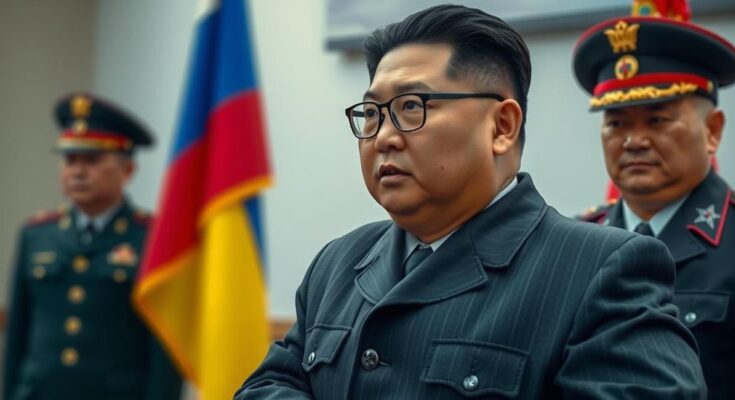North Korean leader Kim Jong Un has pledged unwavering support for Russia’s actions in Ukraine during talks with Russian Defense Minister Andrei Belousov. The meeting was marked by discussions of strategic partnership and military cooperation, with North Korea reportedly sending over 10,000 troops to assist Russia. This alliance raises serious concerns about military escalations and the exchange of advanced technologies between the two nations.
Kim Jong Un, the leader of North Korea, publicly reaffirmed his country’s unwavering support for Russia’s military actions in Ukraine during a meeting with Russian Defense Minister Andrei Belousov in Pyongyang. The state media reported that the two leaders reached a consensus on enhancing their strategic partnership, emphasizing mutual defense against external hegemonic threats. Kim condemned U.S. assistance to Ukraine, framing Russia’s military operations as justified and urged solidarity in confronting imperialist pressures. Moreover, reports indicate that North Korea has dispatched over 10,000 troops to aid Russian forces, a move that contributes to rising international concerns regarding collaboration between the two states.
The relationship between North Korea and Russia has evolved significantly in the context of geopolitical tensions, especially following Russia’s invasion of Ukraine. Both nations perceive U.S. actions as threats to their sovereignty, prompting them to cement military ties. The exchange of military aid and coordination on defense strategies signals a deeper alliance, underscored by mutual interests in resisting perceived Western aggression. Additionally, concerns abound that such cooperation may enable North Korea to enhance its military capabilities, including potential advancements in missile technology.
The meeting between Kim Jong Un and Andrei Belousov illustrates the deepening military cooperation between North Korea and Russia amid ongoing conflicts in Ukraine and external pressures. As both countries navigate a complex international landscape, their strategic partnership serves as a mechanism for mutual defense against perceived threats. The implications of this alliance extend beyond their borders, raising alarm among neighboring countries and international observers regarding the potential for enhanced military capabilities on both sides.
Original Source: apnews.com




